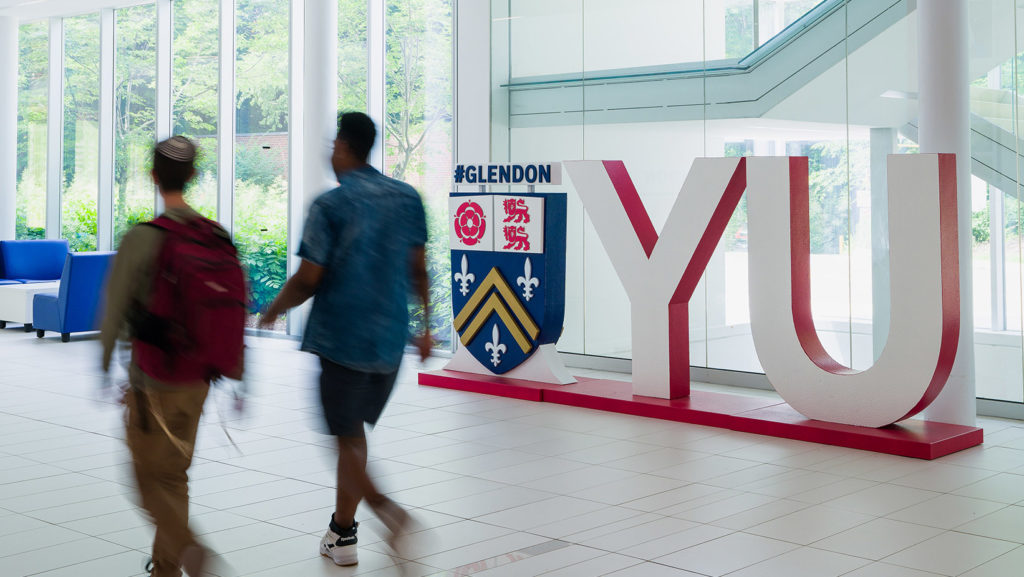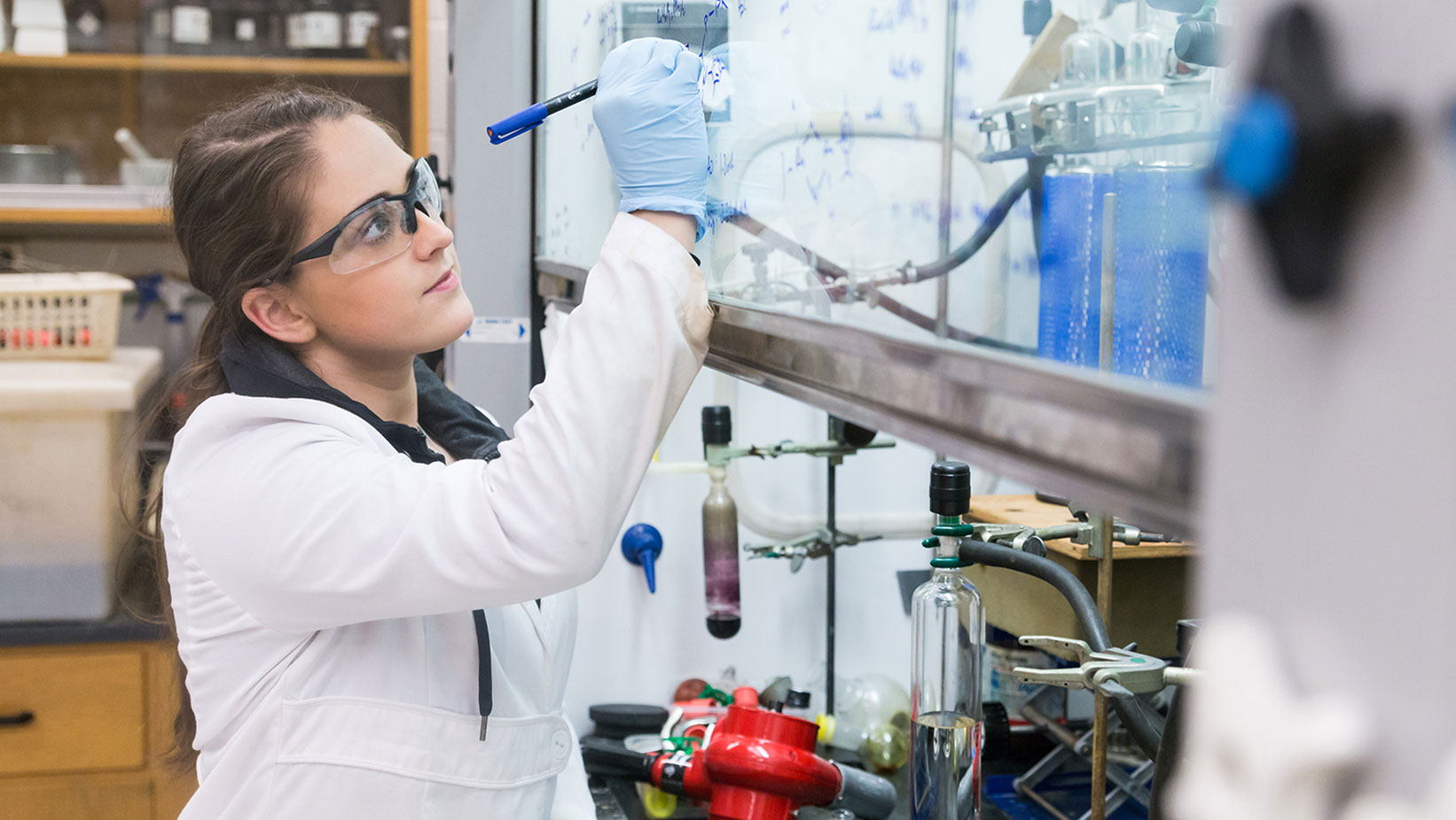Welcome to Glendon’s Research Apprenticeship Program (RAP)!
Through our unique program, you’ll get valuable mentorship from a faculty member, develop skills in conducting research, explore your interests, and receive an award of $1,500.
If selected, you’ll spend two terms conducting research under the supervision of a faculty member, connect with other like-minded students, faculty, and alumni through monthly development workshops, and attend networking sessions.
You’ll spend up to 5 hours per week doing apprenticeship-related work.

RAP Benefits
Mentorship from a Glendon faculty member, which gives you support and encouragement to develop skills for navigating academics, research, and career development.
$1,500 award, half of which ($750) is paid at the end of the fall term, with the final half ($750) being disbursed at the end of the winter term.
Exclusive monthly workshops that encourage academic and personal development. Examples include:
- navigating the York University OMNI library system
- evaluating scholarly sources
- achieving academic success as an undergraduate student
- time management
- exploring career opportunities in research
- achieving your full academic potential
- maintaining resilience in academic environments
Networking opportunities with Glendon faculty and alumni, to build your network and gain additional knowledge about you research, career, and personal development.
Graduate school applications are facilitated. You can obtain references for graduate school from your mentor professors, develop strong research skills and showcase your passion for academia through your participation.
Gain transferable skills for academic success, or for a resume/CV
- Learn to conduct library-based research, condense information, identify reputable sources for information, and analyze texts.
- Develop research expertise and gain communication, organization, problem-solving, and time management skills.
RAP Mentors

Professor Alison Harvey
Communications
Research Description: This is a multi-year research project looking to understand the barriers to successful, long-term employment in the video game industry for highly-skilled workers.

Professor Jean Michel Montsion
Multidisciplinary Studies
Research Description: Focused on how Canada is studied and researched abroad; especially, how international Canadianists study questions of reconciliation, racial equity, environmental issues and language activism in Canada.

Professor Muriel Peguret
French Studies
Research Description: Ce projet vise à soutenir l’apprentissage de la précision linguistique chez les étudiants de français langue seconde à l’université en utilisant la méthode de l’observation de corpus.

Professor Shanna Lino
Spanish and Latin American Cultures & Societies
Research Description: This project involves researching "slow cities" (or 'Citta Slow') in Spain, with the aim to develop international partnerships that will facilitate further research and experiential learning opportunities for students in an international setting.

Professor Usha Viswanathan
Language Training Center for Studies in French
Research Description: On examinera le cas des étudiants francophones/philes dans les cours de français offerts aux universités anglophones en Ontario et au Québec pour évaluer à quel point ces cours offrent des espaces d'apprentissage diversifiés et inclusifs, particulièrement, au cas des étudiants de communautés noires, autochtones et d’autres groupes racisés.

Professor Josée Rivest
Psychology
Research Description: Cette étude fait partie d'un projet de validation d'un outil neuropsychologique (le TorCA -Toronto Cognitive Assessment) qui est maintenant adapté vers le français et doit être administré à des individus francophones afin de récolter des normes et avoir leur rétroaction sur la clarté des directives.

Professor Willem Maas
Political Science
Research Description: This work will consist of actively working on various ongoing research projects that are specifically centered on the complex issues of citizenship and migration - with a particular emphasis on Europe and Canada - and examining how different governments across these regions regulate the migration of poor people, as well as an in-depth and detailed analysis of how borders work, function, and are managed in practice.

Professor Jerzy Kowal
Linguistics and Language Studies
Research Description: This research will explore the rich landscape of linguistic diversity, a cornerstone of Canada's national identity. We will examine several key areas: the implications of official bilingualism, the vital importance of Indigenous languages, and the diverse array of languages brought by immigrants. This study aims to uncover the complex ways in which these linguistic dimensions influence Canada's social, political, and cultural landscapes.

Professor Aurelia Klimkiewicz
School of Translation
Research Description: Research with the Centre for Research on Language and Culture Contact (CRLCC) at GL. The CRLCC is hosting the Spring Research Week to mark its approaching 20th anniversary and will include the following events: the 2nd CRLCC International Symposium “Contact and Engagement: Languages, Cultures and Knowledges” (May 9-10, 2025) and Research Seminar "Archives, Language, and Translation" (May 6-8, 2025).

Professor Buddhika Bellana
Psychology
Research Description: The research we will do consists of quantitative research on human memory and spontaneous thought. This research project involves programming and stats.


RAP FAQs
Timeline
- January 18 – RAP applications open
- June 28 – Deadline to apply to the RAP
- August 21st –Mentor/Apprentice match is released
- The RAP officially begins in the Fall term. You’ll commence research alongside your mentor in September 2024 and complete your assistantship in April 2025.
Eligibility
- All first year Top Scholars are eligible to apply.
- If you have completed your first year of studies and are enrolled full time in a program at Glendon, you can also apply.
- Some projects may require specific skills (e.g., language skills, WordPress and Adobe Photoshop)
- Your curiosity, academic record, learning potential, and educational goals are all taken into account
How to Apply
- Explore the list of available professors and projects.(Available soon)
- Fill out and submit the application form no later than June 28th.


